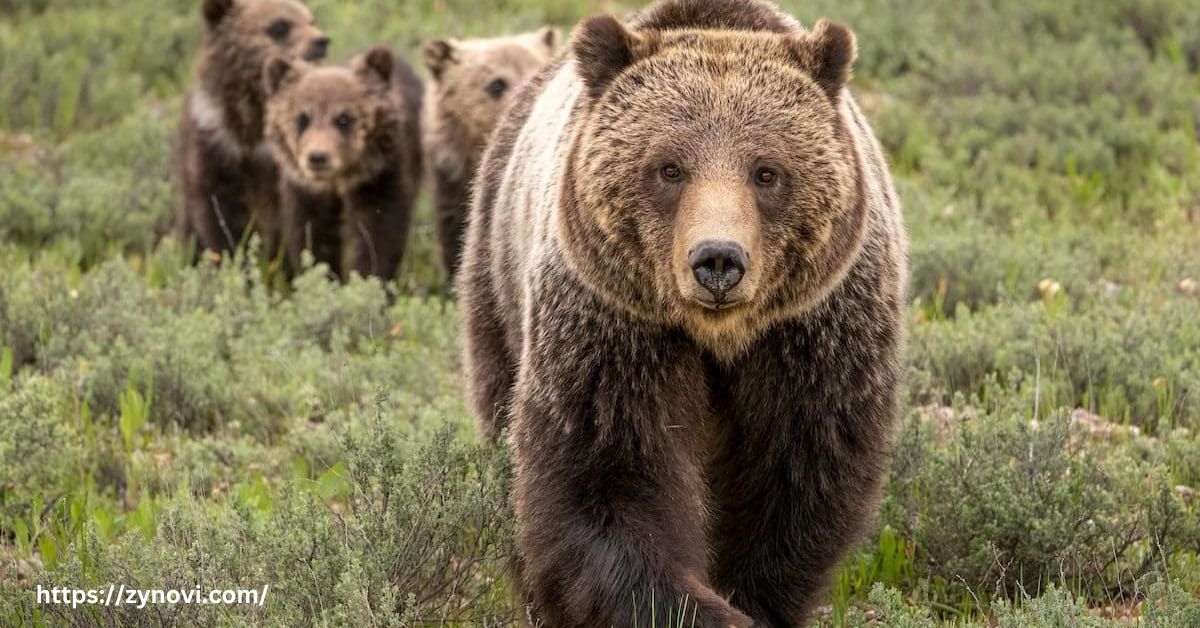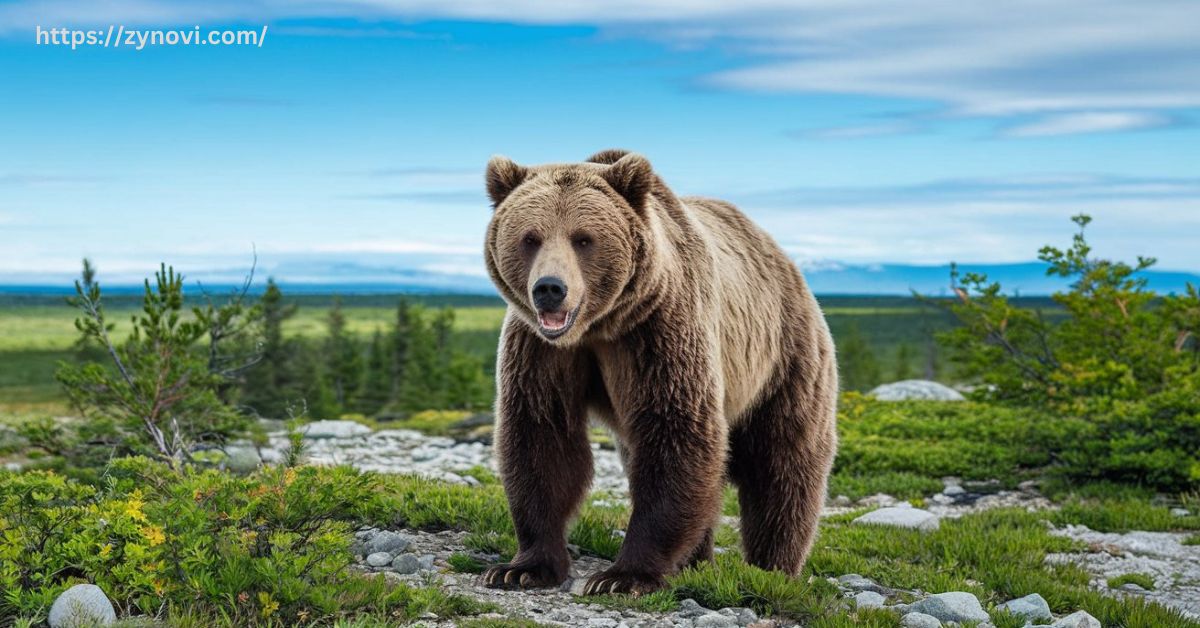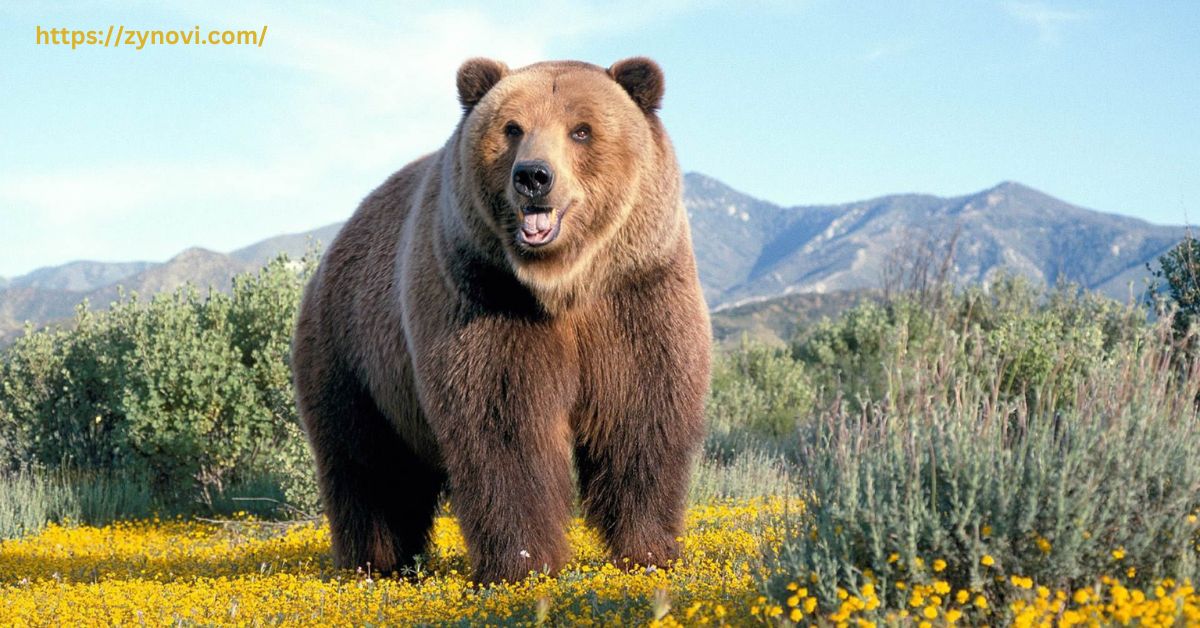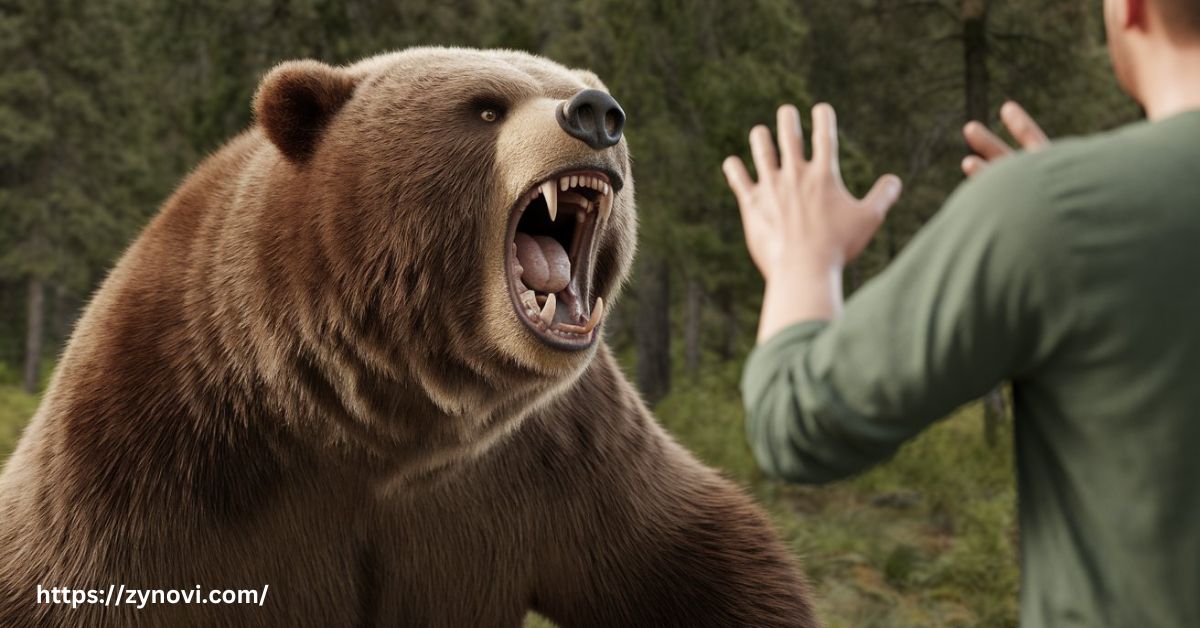Do Grizzly Bears Attack Humans? These rarely attack humans, and when they do, it’s usually due to defensive behavior or surprise encounters.
It’s a question that has sparked curiosity and fear for many. Grizzly bears are one of the most powerful predators in North America, and understanding their behavior is key to staying safe in their territory. But don’t worry while encounters are rare, knowing what to do can make all the difference.
If you’re heading into bear country, it’s important to be prepared and informed. In this article, we’ll explore why these majestic creatures might attack, how to avoid danger, and what steps to take if you ever find yourself in a potentially risky situation. Keep reading!
Understanding Grizzly Bears
What Are Grizzly Bears?
Grizzly bears (Ursus arctos horribilis), a subspecies of the brown bear, are found predominantly in North America, with their range spanning Alaska, Western Canada, and parts of the continental United States like Montana, Wyoming, and Idaho.
Known for their distinctive shoulder hump, powerful build, and dense fur, grizzly bears are formidable predators and scavengers.
Physical Characteristics
| Physical Trait | Description |
|---|---|
| Weight | Male grizzly bears typically weigh between 400 to 790 pounds, showcasing their immense size. Female grizzlies are smaller, weighing around 290 to 400 pounds, which still demonstrates their powerful build. |
| Height | When standing upright, grizzlies can reach an impressive height of up to 8 feet tall, making them a towering presence in the wild. Their stature contributes to their dominance in their habitats. |
| Speed | Despite their bulky frame, grizzlies are astonishingly agile and can reach speeds of up to 35 mph. This makes them capable of quick pursuits, whether hunting or defending themselves. |
Grizzly Bear Behavior and Habits
Understanding grizzly bear behavior is crucial for avoiding dangerous situations. These animals are generally solitary, except during mating season or when a mother is raising cubs.
- Activity: Grizzly bears are most active during dawn and dusk, foraging for food in forests, river valleys, and alpine meadows.
- Diet: Omnivorous, their diet includes fish, carcasses, berries, roots, and insects.
- Territory: Grizzlies are territorial and may perceive humans as threats, especially near food sources or cubs.
Do Grizzly Bears Attack Humans?

Why Do Grizzly Bears Attack Humans?
Grizzly bear attacks are rare, but understanding the triggers can help mitigate risks.
- Defensive Behavior
- Protecting cubs is the leading reason grizzlies display defensive aggression. B
- ears may attack if they are startled or feel threatened in their territory.
- Food-Conditioned Bears
- Bears accustomed to human food often lose their natural fear, increasing the chances of conflict.
- Improperly stored food or garbage can attract bears, creating dangerous situations.
- Surprise Encounters
- Accidentally startling a bear, especially in dense brush or wooded areas, can lead to an attack.
- Moving quietly or unpredictably in bear habitats increases the risk of surprise confrontations.
Common Scenarios Leading to Grizzly Bear Attacks
Hiking Encounters
- Hikers may accidentally enter a bear’s personal space, triggering a defensive response.
- Lack of noise while hiking can increase the chances of startling a bear.
Camping in Bear Territory
- Improperly stored food or garbage can draw bears into campsites, risking close encounters.
- Scented items, including toiletries, can also attract curious bears to tents.
Fishing and Hunting Conflicts
- Carrying fresh fish, game, or food scraps can lure bears seeking an easy meal.
- Hunters and fishers may inadvertently compete with bears for the same food sources.
How Often Do Grizzly Bear Attacks Occur?
Grizzly bear attacks are extremely rare. In North America, fewer than one fatal attack per year occurs on average. For perspective:
- You are more likely to be struck by lightning than attacked by a grizzly bear.
- Dog-related injuries are far more common than bear attacks.
| Year | Reported Attacks | Fatalities |
|---|---|---|
| 2020 | 15 | 1 |
| 2021 | 12 | 0 |
| 2022 | 17 | 1 |
The Reality of Grizzly Bear Attacks

Are Grizzly Bear Attacks Dangerous?
Yes, grizzly bear attacks can result in severe injuries or fatalities due to their immense strength and aggression.
- Grizzly bear attacks can cause severe injuries or even fatalities due to their immense strength, speed, and aggression.
- A grizzly’s bite force, estimated at 1,200 PSI, can easily crush bones, making their attacks highly dangerous.
- Their claws, up to 4 inches long, are capable of inflicting devastating injuries, particularly to vital areas.
Survival Rates of Bear Attacks
Survival rates in grizzly bear attacks are higher than often expected, depending on the victim’s preparedness and composure.
Bear spray is a proven deterrent, reducing injury severity by making bears retreat. Many survivors attribute their survival to playing dead lying face down, covering the neck, and staying still.
This tactic works as the bear may lose interest, assuming the threat has been neutralized, ultimately preventing further aggression.
Comparing Grizzly Bears to Other Predators
- Grizzly Bears: Primarily defensive, but they can be extremely dangerous when they feel threatened, especially when protecting their young or territory.
- Black Bears: Generally less aggressive than grizzlies, black bears are more likely to flee than engage in a confrontation.
- Cougars: Predatory by nature, cougars tend to be more stealthy and unpredictable, making their behavior harder to anticipate.
How to Avoid a Grizzly Bear Attack

Best Practices for Staying Safe in Bear Country
- Travel in Groups: Bears are less likely to approach or attack groups, as their larger numbers are perceived as a greater threat.
- Make Noise: Using bear bells or clapping loudly helps alert bears to your presence, giving them time to avoid you.
- Keep a Safe Distance: Always maintain at least 300 feet of distance between you and any bear to reduce the chance of surprising or provoking it.
Essential Gear to Carry
- Bear Spray: Effective in over 90% of cases, bear spray is crucial for deterring attacks by creating a temporary barrier of irritants between you and the bear.
- Noise-Making Tools: Whistles or air horns can deter curious bears by creating a loud, alarming sound, signaling your presence and discouraging the bear from approaching.
- Food Storage Containers: Bear-proof canisters are vital for keeping food securely stored and preventing bears from being attracted to your campsite.
What to Do During a Grizzly Encounter
- Assess the Situation: Determine if the bear is behaving defensively, perhaps to protect its cubs, or if it is exhibiting predatory behavior.
- Avoid Eye Contact: Direct eye contact may be seen as a threat. Instead, keep the bear in your peripheral vision while remaining calm.
- Slowly Back Away: Don’t run, as it could provoke the bear to chase. Back away slowly, maintaining a calm demeanor.
- Use Bear Spray: If the bear approaches within range, aim for its face and discharge the spray to create a deterrent cloud.
- Play Dead: If attacked defensively, lie face down, cover your neck with your hands, and remain motionless to signal to the bear that you are no longer a threat.
Myths and Facts About Grizzly Bears
Common Misconceptions
Myth: Grizzly bears actively hunt humans.
Fact: Grizzly bears do not hunt humans as prey. They attack only when they feel threatened, startled, or provoked, particularly when protecting their young or food.
Myth: Loud noises always deter bears.
Fact: While loud noises can sometimes deter bears, habituated bears (those used to human presence or food) may ignore these sounds, making them less effective in such cases.
Facts Everyone Should Know
- Grizzly bears are listed as threatened under the Endangered Species Act in the contiguous United States, highlighting their vulnerable population status and the importance of conservation efforts.
- Grizzly bears are essential for ecosystem health, as they help disperse seeds and manage prey populations, playing a crucial role in maintaining balance in their habitats.
FAQs
Are grizzly bears aggressive to humans?
Grizzly bears are not inherently aggressive but can become dangerous if threatened, surprised, or if they feel their young or food is at risk.
Will a grizzly bear attack me?
A grizzly bear will only attack humans in specific situations, such as when startled, provoked, or if it perceives a threat.
Can a human beat a grizzly bear in a fight?
Humans are no match for a grizzly bear in physical combat due to their size, strength, and natural abilities.
What bear is most likely to attack humans?
Grizzly bears are more likely to attack humans compared to black bears, especially when they feel threatened or are protecting cubs.
Conclusion: Do Grizzly Bears Attack Humans?
In conclusion, while grizzly bear attacks on humans are rare, they often occur due to defensive behavior, particularly when the bear feels threatened, surprised, or is protecting its cubs or food.
Understanding bear behavior, being cautious in bear habitats, and carrying essential safety gear like bear spray can drastically lower the likelihood of an attack. Practicing good habits, such as making noise to alert bears of your presence and storing food properly, is crucial.
By respecting wildlife and staying aware, you can safely enjoy bear country while minimizing risks.










